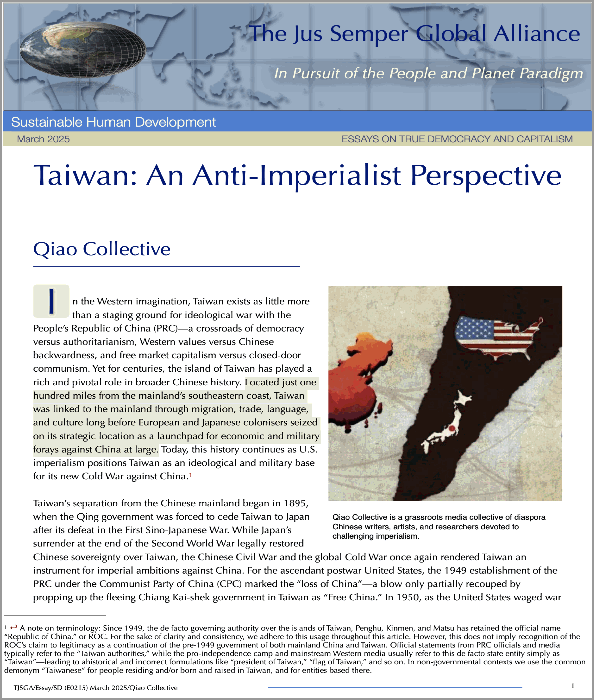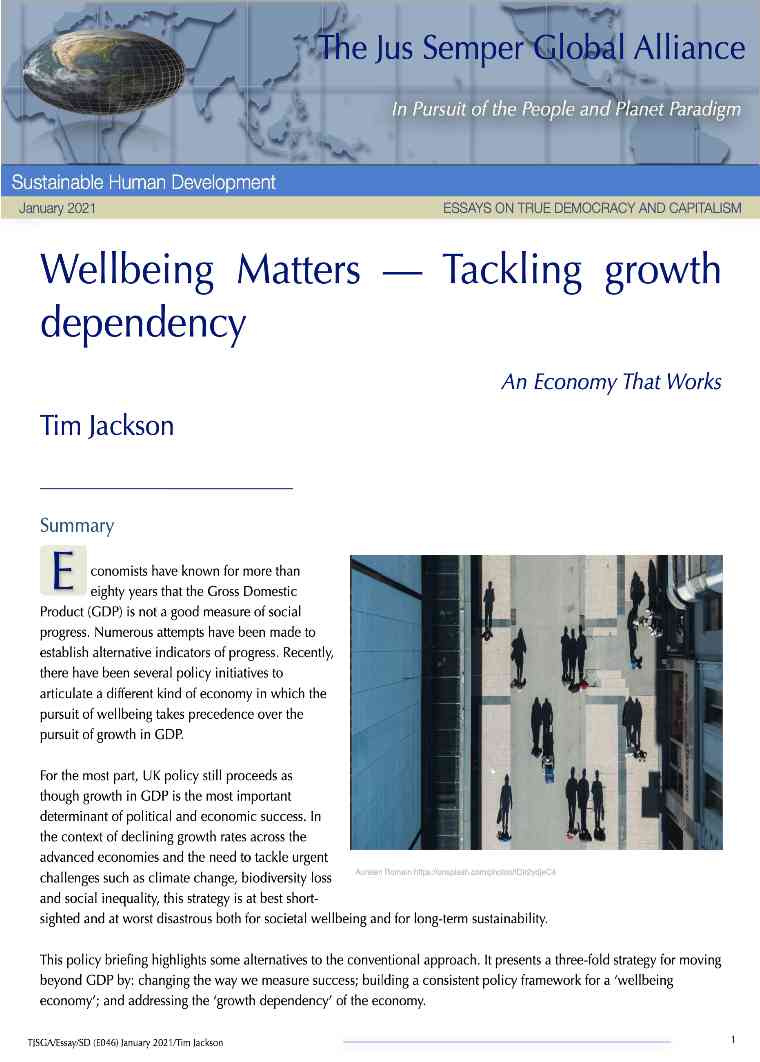dependency
Tim Jackson For the most part, UK policy still proceeds as though growth in GDP is the most important determinant of political and economic success. In the context of declining growth rates across the advanced economies and the need to tackle urgent challenges such as climate change, biodiversity lossand social inequality, this strategy is at best short-sighted and at worst disastrous both for societal wellbeing and for long-term sustainability. This policy briefing highlights some alternatives to the conventional approach. It presents a three-fold strategy for moving beyond GDP by: changing the way we measure success; building a consistent policy framework for a ‘wellbeing economy’; and addressing the ‘growth dependency’ of the economy. ➡ a determined effort to develop new measures of societal wellbeing and sustainable prosperity; ➡ the full integration of these measures into central and local government decision-making processes; ➡ the alignment of regulatory, fiscal and monetary policy with the aims of achieving a sustainable and inclusive wellbeing economy; ➡ the establishment of a formal inquiry into reducing the ‘growth dependency’ of the UK economy; ➡ the development of a long-term, precautionary ‘post-growth’ strategy for the UK. In this briefing note, we propose three strategies in response to this dilemma. The first is to integrate better indicators of prosperity into policy. The second is to use these new measures to move society away from an economy defined by the limitations of GDP and towards a ‘wellbeing economy’. The third is to address and reduce the ‘growth dependency’ of the economy. The aim of this briefing is to describe these three strategies in more detail. For a full read of this brief, click here or on the picture to download the pdf file.
|

- © The Jus Semper Global Alliance
| Home |  | Resources |  | Economic Data |  | Wellbeing Matters |


